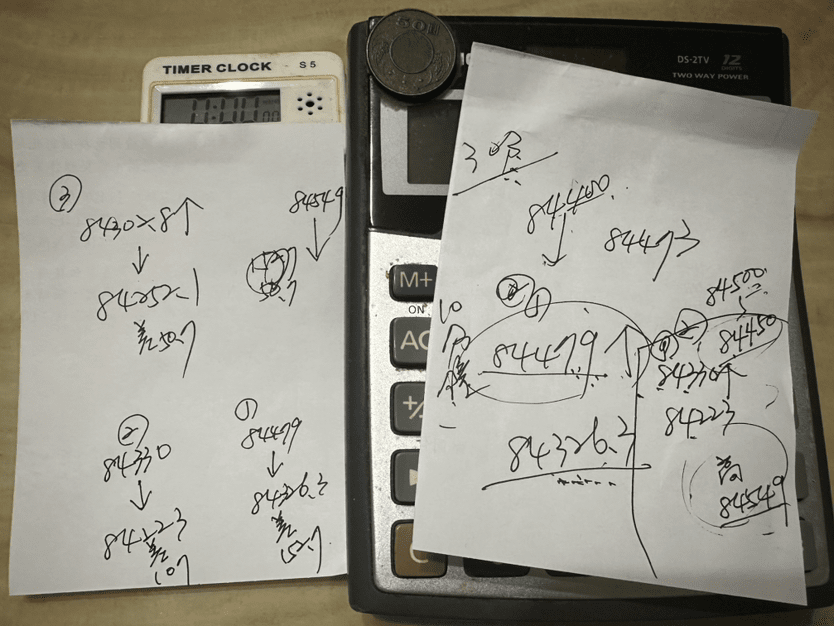📣 Here it comes! Little Orchid is here to report today’s results. 😂
Can you make money on Binance's event contracts without robots or powerful indicators? 🧐
🔊 As of 3/22, a total of 8 orders: 5 wins and 3 losses. 😅
While the friends in the square supervise, I also want to share some heartfelt thoughts with everyone.
First of all, I don’t only place large amounts for each order. I make trades of all sizes, and even if it's a losing trade, I honestly share it so that friends can supervise and witness the growth of Little Orchid together. 👀
Now I want to share some of my insights from my current experience. If you don’t learn to control your position size, your mindset, and your greed, even if you have the best indicators and the strongest funds, you will ultimately fail. I think this is a test of human nature!
Everyone has their own methods. This game itself tests human nature and mindset. I don’t care about the size of the trades; even with a high win rate, I can still make money. What I seek is stability and profit! It’s not about rushing to get results and turning myself into a gambler. Teaching someone to fish is better than giving them fish. I’ve experienced liquidation and gained profound insights. I never claimed that I would definitely succeed. There’s no need to keep opening large orders and putting pressure on yourself, nor do I consider myself a gambling god. 😂 Rather than saying this game is about guessing price movements, it's more about the psychology of human nature.
Event contracts should abandon the notion of 'buying the dip.' 'Buying the dip' is aimed at gaining more profit, but the returns from events are fixed. No matter how the market fluctuates, the final returns won't change. As long as you manage your capital well, you will end up with more in your pocket than what you put in.
Actually, you don't necessarily have to play for 10 minutes. Playing for 30 minutes is also fine. You will often find that you lose due to time differences when you play for 10 minutes. Clearly, the direction is correct, but you often lose by seconds, leading to liquidation. 🤬 Playing for 10 minutes is not wrong, but the risk factor is relatively high. If you want to play for 10 minutes, first, you must have the correct direction, and then you need to calculate the risk of time differences as well. Go with the trend! But if you play for 30 minutes, once you get the direction right, you can trade time for space, which is safer!
# But mainly it's about not being impatient while trading, just like when you open a contract; don't always fear missing the bus, worrying that you might miss out on making money! Patience is key! The difficulty in trading lies in overcoming human nature, and mindset is also part of trading. You are neither the first nor the last; every newcomer thinks they can defy fate, and every person who makes money believes they are exceptionally talented. Only after understanding the rules do they realize that surviving is already good enough. 😂
Investment, speculation, and gambling have very blurred boundaries. If you're not careful, they can easily switch from one to another. That's human nature! Following human nature means only putting money in and not taking it out, while going against human nature means only taking money out and not putting it in. That’s the market.
Speaking of the number of orders, I personally believe that placing around 10 orders a day, or fewer than 10, is optimal. A small number of orders can greatly increase your observation time, thereby improving your accuracy.
There’s a saying at the gambling table: the more you bet, the closer your odds will approach the house's calculated winning percentage.
The more orders you place, the greater the chance of making mistakes. Sometimes it's not that your method is wrong, but that you don't have enough time to think before placing an order. You focus all your attention on the joy of profit and the regret of loss, rather than making precise judgments before placing the order.
Moreover, when placing orders late at night, one must remain calm. I’ve seen many people lose money, and many losses occur late at night. In the evening, indicators can be inaccurate, and emotions can be very unstable, leading to impulsive decisions. This is human nature. You might feel that your thinking is clearer at night, but thinking is one thing, and emotions are another; they cannot be confused.
Mindset and emotions are equally important; they account for a significant part. If you can't manage your mindset and emotions well, even the best techniques will be in vain.
It’s actually counterintuitive; after a few days of understanding, your win rate will improve. If there's no volume, there's no need to trade!



